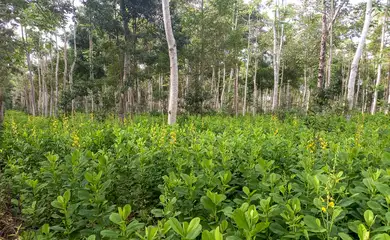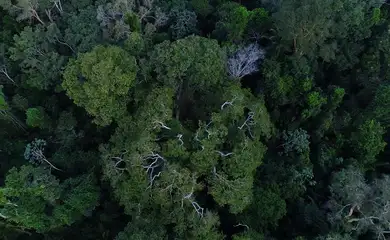Brazil secures G20 support for climate funds reform

The G20 Sustainable Finance Working Group (SFWG) held its final meeting under the Brazilian presidency in Rio de Janeiro on Tuesday (Sep. 10). According to the group's coordinators, the main outcome is a report with recommendations for reforming environmental and climate funds, focusing on improving accessibility. This document was prepared by experts commissioned by the working group.

The WG was established to mobilize sustainable finance to support global growth and stability. Its aim is to facilitate transitions towards greener, more resilient, and inclusive societies and economies. The group's mission is to identify and address institutional and market barriers to achieving these goals.
According to the coordinators, by the end of its term, the WG made significant progress in the four priority areas set by the Brazilian presidency: facilitating access to green funds, establishing principles for a just transition, enhancing sustainability reporting, and developing financial instruments for nature-based solutions.
Cyntia Azevedo, Deputy Head of the Central Bank of Brazil's International Relations Department, participated in the WG and emphasized the importance of institutions making genuine commitments to the agenda while avoiding greenwashing.
“Several of the WG's recommendations focus on enhancing data quality, reliability, and comparability. Investors need to understand the true nature of each company's activities and have confidence that what is marketed as sustainable genuinely is. It's not enough to claim sustainability; it must be proven,” said Cyntia Azevedo.
Streamlining
Streamlining access to funds for the Global South has consistently been a priority for Brazil. Currently, four multilateral organizations finance most of the projects aimed at addressing the climate crisis: the Green Climate Fund, the Climate Investment Funds, the Adaptation Fund, and the Global Environment Facility.
Most countries in the Global South find the criteria for accessing these funds to be bureaucratic and challenging. Brazil hopes that the recent G20 meetings will lead to changes in this process.
“We prioritized using the political capital of the G20 to drive a transformation in the world's major climate and environmental funds. What we’ve accomplished is significant. While we have an implementation agenda ahead, we successfully secured support from all G20 members for reforming the climate finance architecture,” said Ivan Oliveira, the group's coordinator and undersecretary for Sustainable Development Financing at the Ministry of Finance.
According to Oliveira, “This aligns closely with President Lula's foreign policy agenda of solidarity. It represents a significant outcome with the potential to unlock the system, ensuring that the billions of dollars allocated to these funds are actually delivered to the countries in need more swiftly and effectively.”






